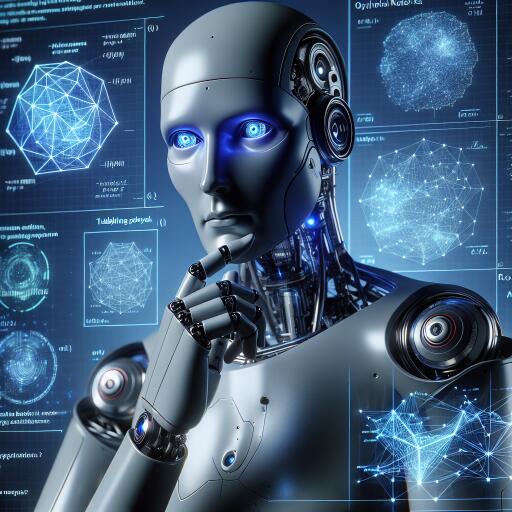Revolutionizing Everyday Tasks: The Rise of Humanoid Robots with Cognitive Abilities
In an era where artificial intelligence (AI) seamlessly integrates into the fabric of daily life, tech start-up Mentee Robotics is pushing the boundaries of innovation with the introduction of its latest creation: the MenteeBot. This humanoid robot, standing at 5’8″ and weighing 154 pounds, is not merely a piece of machinery; it embodies the next step in AI technology, capable of “thinking” through tasks and executing them with precision.
The groundbreaking MenteeBot is designed to respond to voice commands, allowing it to undertake a wide variety of household tasks, from the mundane to the complex. At the heart of its functionality are advanced large language AI models (LLMs) which enable the robot to process and execute tasks by making autonomous decisions. Set to be launched in early 2025, MenteeBot represents the cutting edge of robot assistants, tailored for both domestic and commercial use.
“We are witnessing the dawn of a new era in robotics, marked by the integration of computer vision, natural language understanding, and advanced simulation techniques,” explained Asmnon Shashua, Chairman of Mentee Robotics. “Our aim is to create a versatile, bipedal robot capable of navigating and functioning in any human environment, learning new tasks through imitation, and performing a multitude of household chores without prior explicit programming.”
Demonstration videos of Mentee in action showcase its remarkable capabilities. The robot can identify and navigate to specific locations, such as a kitchen table in an office setting, gently handle delicate items like fruit, placing them in a box without inflicting damage, and transport the box to a designated spot. Communicating through a synthesized voice, Mentee confirms comprehension of instructions and provides updates on task completion, underscoring its interactive nature.
What sets Mentee apart is its ability to understand and adapt to its physical environment in real-time. Utilizing advanced algorithms, it constructs a dynamic 3D map of its surroundings, enabling it to move with agility and precision while avoiding obstacles. This adaptability extends to handling objects of varying fragility and weight, altering its movement and grip as necessary to ensure safe and efficient task execution.
Designed with versatility in mind, Mentee is poised to revolutionize both domestic environments and warehouse settings. The domestic assistant variant, for example, is engineered to perform tasks such as laundry, setting tables, and even learning new chores on the fly. With a load capacity of up to 55 pounds and a battery life of five hours on a single charge, Mentee’s potential applications are wide-ranging.
MenteeBot’s exceptional learning capabilities stem from its use of simulation-to-reality (Sim2Real) machine learning. By training in a virtual environment before applying these skills in the real world, Mentee has access to virtually unlimited training data, significantly enhancing its problem-solving and task management abilities. This approach mirrors the development of other AI-driven innovations, such as the AI software engineer, Devin, which also navigates complex tasks autonomously but in the digital realm.
The emergence of robots like Mentee signals a pivotal moment in the evolution of AI technology. By extending AI capabilities into the physical domain, robots are now poised to undertake tasks that are tedious, hazardous, or physically demanding, offering new solutions to old challenges. For instance, Mercedes is incorporating humanoid robots from Apptronik into its assembly lines, while Apple explores the potential of AI-powered home robotics products. In this ever-evolving landscape, MenteeBot stands out as a beacon of what the future holds for humanoid robotics and AI, heralding a new age of intelligent assistants tailored to meet the complexities of human needs and environments.
As we stand on the cusp of this technological revolution, it’s clear that Mentee Robotics’ contribution to the field will not only redefine our interaction with machines but also significantly enhance our capability to manage and execute everyday tasks more efficiently and effectively.










